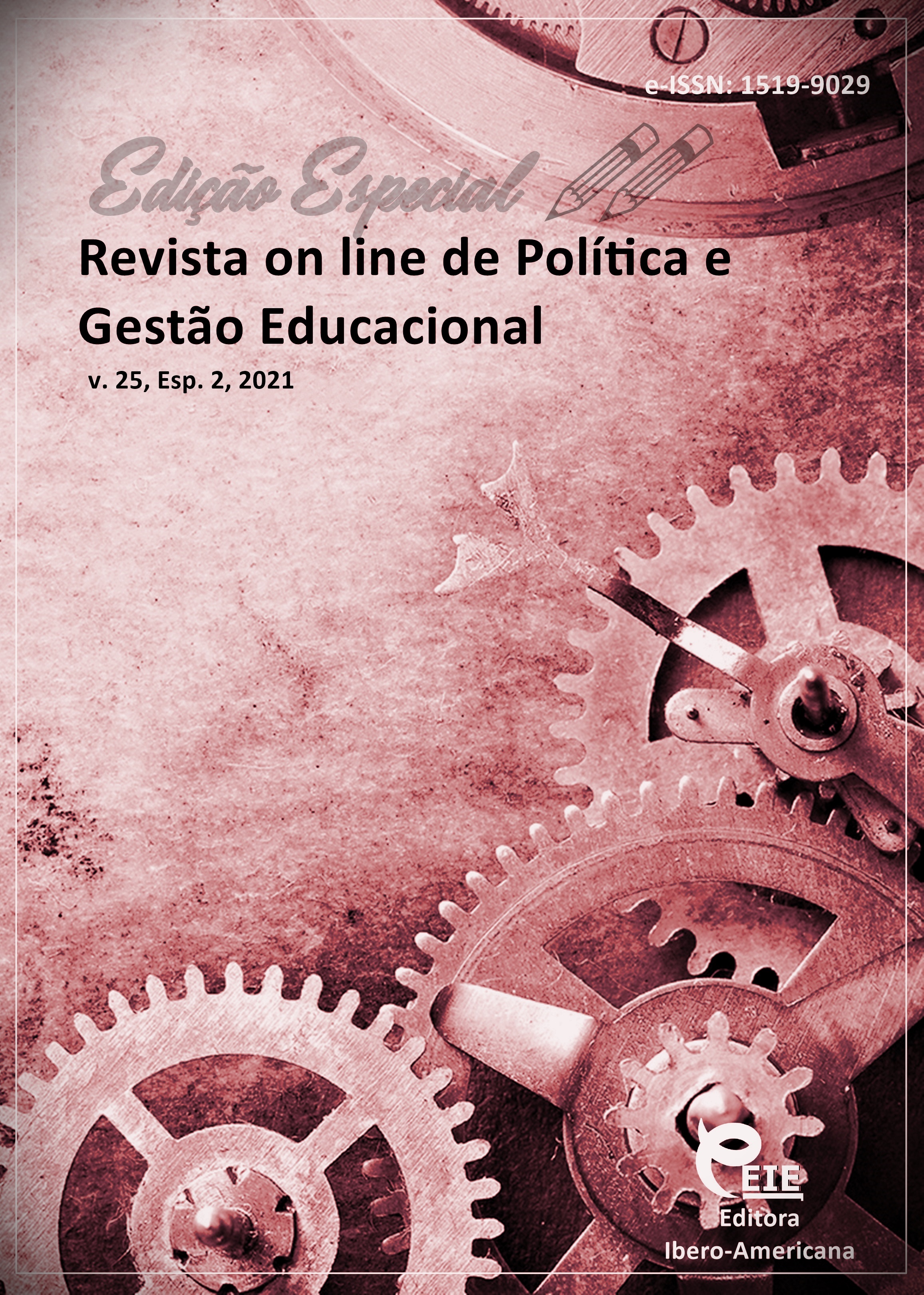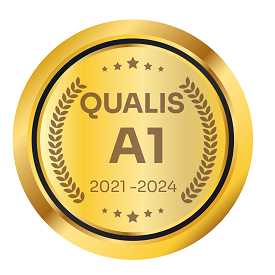Una escuela en la mezquita en la estructura de la educación religiosa musulman: estatus y evaluación
DOI:
https://doi.org/10.22633/rpge.v25iesp.2.15276Palabras clave:
Religión, Educación, Escuela mezquita, Maktab, Educación musulmanaResumen
El renacimiento islámico naturalmente planteó el tema de la educación musulmana en el espacio postsoviético. El crecimiento y fortalecimiento de la ideología del islamismo radical en la conciencia pública, la designación del predominio de la adherencia a los preceptos religiosos en la vida cotidiana en contraposición a las leyes seculares, acciones destructivas bajo el lema de proteger la "pureza" de la fe requirieron la Difusión de conocimientos religiosos que no amenacen los cimientos seculares del Estado ruso. Por lo tanto, el desarrollo de la educación religiosa musulmana en los territorios de la expansión histórica del Islam adquirió un significado especial, ya que estaba destinado a dar a quienes deseaban recibir educación religiosa un conocimiento que no predicara la intolerancia interreligiosa y no difundiera ideas radicales en el país. Sociedad rusa. Los datos empíricos indican que la población encuestada valora positivamente la calidad de la educación en la escuela de la mezquita, argumentando que reciben un buen conocimiento de los fundamentos del Islam, tienen la oportunidad de aprender a leer el texto sagrado, así como ciertas acciones rituales que son bastante significativo para los encuestados en su vida diaria. Como educación laica, la educación religiosa también tiene desventajas, y para mejorar el estado de la educación islámica, según los expertos entrevistados, es necesario realizar conferencias nacionales, mesas redondas, que discutirán temas de formación docente, organizar cursos de formación de maestros de maktabs, asegurar una escuela en la mezquita unificada literatura educativa y metódica.
Descargas
Citas
BAGATYRADAEVA, A. R. Formation and development of cultural and educational institutions in the process of becoming a cultural and educational space in Dagestan in the II half of the XIX century. Psychological and Pedagogical Sciences, v. 2, n. 23, p. 37-41, 2013.
BERGLUND J.; GENT, B. Believing, belonging and behaving: some considerations when teaching about islam. Available: https://www.su.se/polopoly_fs/1.385561.1526389353!/menu/standard/file/. Access: 08 Feb. 2019.
BILYALOV, V. R.; SEDANKINA, T. E. Problems of empathy of imams in the learning process in the Azov madrasah. Islamic studies, v. 8, n. 1, p. 27- 33, 2015.
HASSEN, Y. Making muslims: the politics of religious identity construction and victoria's islamic schools. Islam and Christian – Muslim Relations, v. 24, n. 4, p. 501- 517, 2013.
HILLS, P. a normative approach to the legitimacy of muslim schools in multicultural britain. Available: https: //schoolsweek.co.uk/a-normative-approach-to-the-legitimacy-of-muslim-schools-in-multicultural-britain. Access: 08 Feb. 2019.
KASHAF, S. R. Constructive dialogue in Makhachkala on the problems and prospects for the development of theological education in Russia. Islamic Studies, v. 11, n. 4, p. 907-931, 2018. DOI: 10.31162 / 2618-9569-2018-11-4-907-931
MEER, N. Muslim schools in britain: challenging mobilisations or logical developments? Available: https: // scholar . google . ru / citations ? user. Access: 08 Feb. 2019.
NURULLINA, R. Optimization of the Muslim education system in the Republic of Tatarstan: opinions and assessments of teachers and students of madrasah. Islamic Studies, v. 1, n. 8, p. 46-50, 2012.
OMAROV, A. Memories of a mutalim. Collection of information about the Caucasian highlanders. Tiflis, n. 1, p. 15- 31, 1868.
PATEEV, R. Russia: problems of co-optation of graduates of islamic universities into the official muslim clergy (on the example of dagestan). The Caucasus & Globalization, v. 2. n. 3, p. 150-160, 2008.
SEDANKINA, T. E. Modern problems of education in the religious and moral sphere. Islamic Studies, v. 6, n. 1, p. 37-44, 2013.
SHAKHBANOVA, M. M. The place of religion in the process of forming a culture of interethnic communication. Actual problems of the humanities – 2009. Makhachkala, 2009. p. 15-24 (Collection of scientific papers)
SHANGARAEV, R. Problems of religious education: the state of educational and methodological support of Muslim religious educational institutions (madrasah) of the Republic of Tatarstan. Islamic Studies, v. 2, n. 8, p. 4-16, 2011.
SHIKHSAIDOV, A. R.; TAGIROVA, N. A.; GADZHIEVA, D. K. Arabic handwritten book in dagestan. Makhachkala, 2001. 256 p.
SOKOL, M. et al. Tolerance in the communicative culture of modern educational manager. Propósitos y Representaciones, v. 9, n. esp. 3, e1171, 2021.
TEMIROV, A. M. The state of muslim confessional education in dagestan in the 20s of the XX century. Ethnosocium and Interethnic Culture, v. 3, n. 11, p. 67-71, 2008.
YARLYKAPOV, A. A. Islamic education in the north caucasus in the past and in the present. Bulletin of Eurasia, n. 2, p. 5-31, 2003.
Publicado
Cómo citar
Número
Sección
Licencia
Derechos de autor 2021 Revista on line de Política e Gestão Educacional

Esta obra está bajo una licencia internacional Creative Commons Atribución-NoComercial-CompartirIgual 4.0.
Manuscritos aceitos e publicados são de propriedade da Revista on line de Política e Gestão Educacional. É vedada a submissão integral ou parcial do manuscrito a qualquer outro periódico. A responsabilidade do conteúdo dos artigos é exclusiva dos autores. É vedada a tradução para outro idioma sem a autorização escrita do Editor ouvida a Comissão Editorial Científica.











